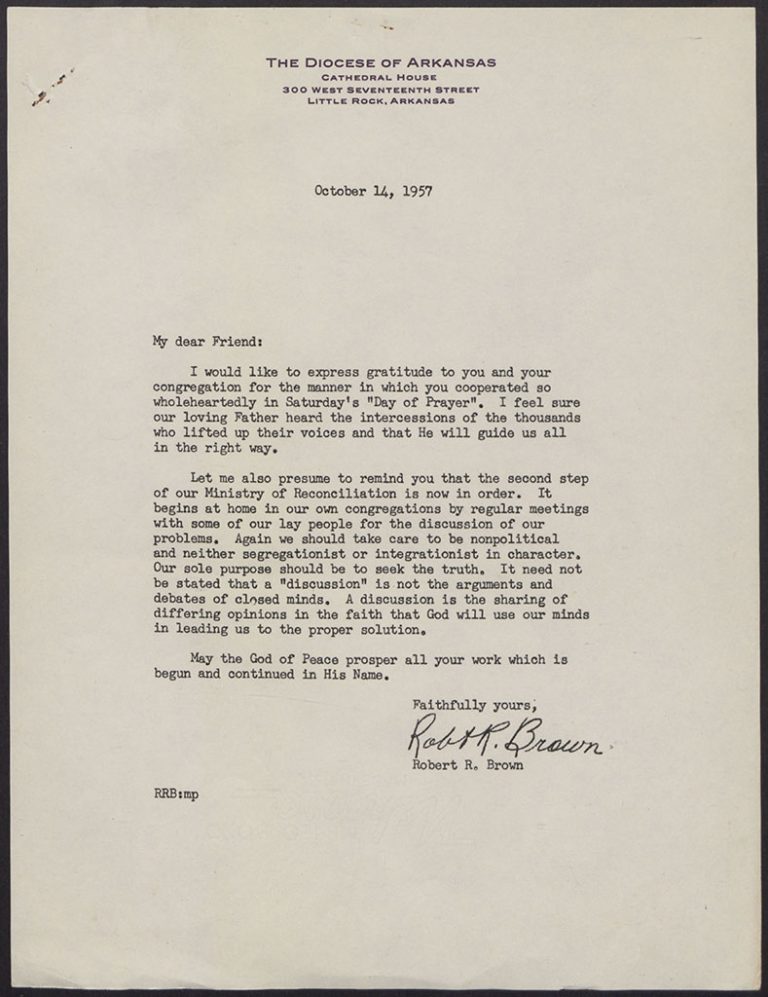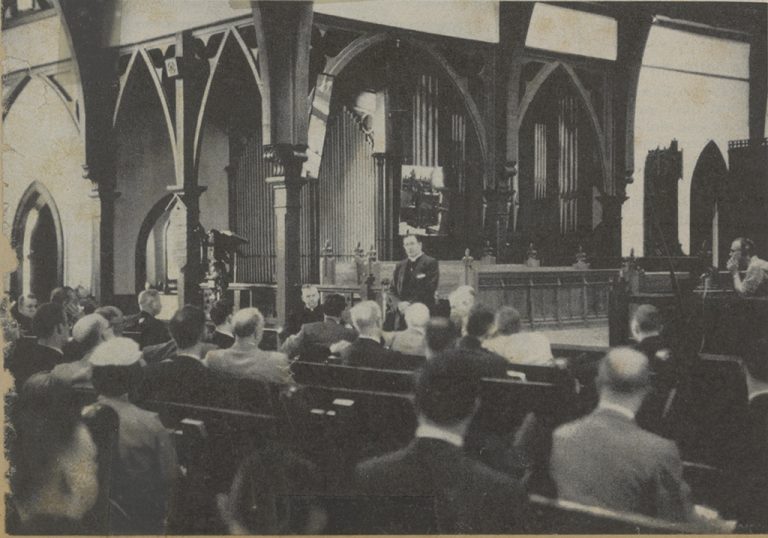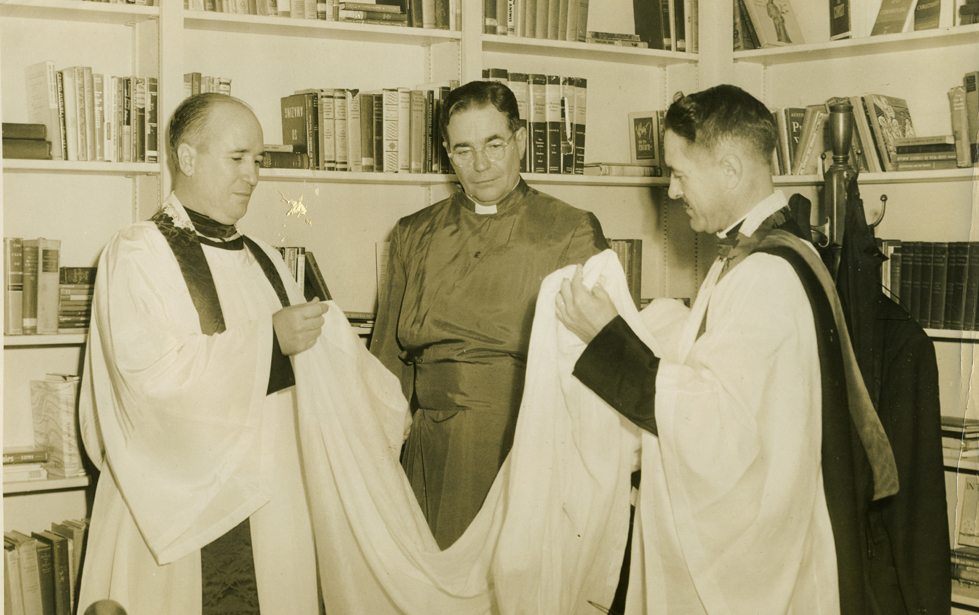Bishop Brown’s belief and adherence to the principles of equality were guiding forces throughout his life. His letters, sermons, writings, and actions reflect his trust in those principles. These guiding forces served Brown well when he was thrust into the middle of the desegregation crisis in 1957. Bishop Brown addressed concerns over problems caused when Little Rock Central High School was ordered to integrate by a federal court order in 1957.

He called for a “Special Day of Prayer” and a “Day of Reconciliation” after Arkansas Governor Orval Faubus mobilized the Arkansas National Guard in an effort to prevent nine African-American children from attending Little Rock Central High School under that order. Faubus’ move created tension with the federal government as well as between the black and white communities in Little Rock.

Those conflicts were Bishop Brown’s focus during the crisis. Not feeling that it was his duty to take a position on either side in the crisis, Bishop Brown wrote in the September 1957 issue of The Arkansas Churchman:
“In every such problem neither side is all good or all evil. Right and wrong become so completely mixed in the same salad bowl as to make it extremely difficult to distinguish between them.”
Featured image: Brown before consecration, 1957. Courtesy of the Butler Center for Arkansas Studies.

